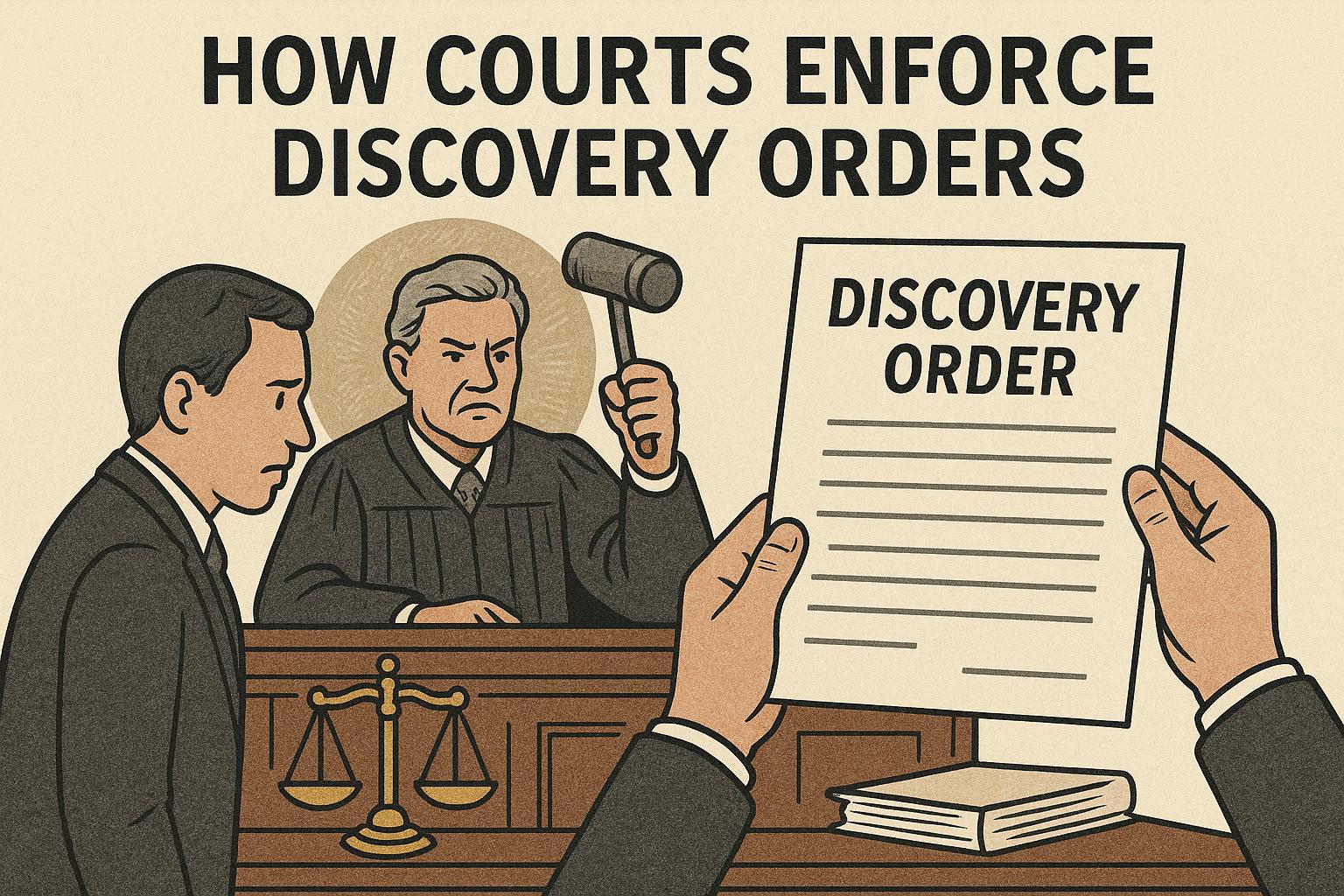Understanding Court Enforcement of Discovery Orders
In the realm of legal proceedings, one of the most crucial phases is discovery. This is the process where parties involved in a legal dispute exchange information and evidence that are pertinent to the case. The purpose of discovery is to allow both sides to have access to the facts, promoting transparency and fairness in the trial process. At the heart of this process are discovery orders, which are directives issued by the court mandating the sharing of specific pieces of information and documents. However, when parties fail to comply with these orders, courts have established mechanisms to enforce them, ensuring the smooth progression of legal cases.
Methods of Enforcement
Courts possess an array of tools to ensure that discovery orders are adhered to. The selection of an appropriate enforcement method often depends on the degree of non-compliance and its consequences on the legal proceeding.
Court Sanctions: One of the primary enforcement methods is through sanctions, which serve as a deterrent to non-compliance. There are various forms of sanctions that the court may impose. Monetary fines are direct financial penalties levied against the non-compliant party. These fines serve to penalize the party financially, encouraging future compliance. Another form of sanction is adverse inference rulings. In cases where a party withholds information, the court may instruct the jury to assume that the undisclosed information would have been detrimental to that party’s case. Additionally, preclusion orders may be issued, barring non-compliant parties from presenting certain evidence or arguments during the trial. These measures are designed to maintain a level playing field and encourage full disclosure.
Compelling Discovery: In instances where a party is reluctant to comply with discovery obligations, the court may resort to issuing an order compelling the party to produce the required information. If the non-compliance persists despite the order, the court can implement more stringent sanctions or hold the party in contempt. This layered approach to enforcement ensures that parties are given ample opportunity to meet their discovery obligations while upholding the authority of the court.
Contempt of Court
When a party continues to disregard discovery orders, the court may resort to a more severe enforcement measure: contempt of court. Contempt proceedings can have serious repercussions for the non-compliant party.
Civil Contempt: Civil contempt is utilized primarily as a coercive measure to compel compliance with a court order. In civil contempt cases, the non-compliant party is given the opportunity to avoid additional penalties by subsequently adhering to the orders set forth by the court. This form of contempt is designed to incentivize compliance while maintaining judicial authority.
Criminal Contempt: Unlike civil contempt, criminal contempt is imposed as a punitive measure to address actions that undermine the authority of the court. Penalties for criminal contempt can include fines and imprisonment. These punitive actions underscore the importance of respecting the judicial process and are employed to uphold the court’s dignified authority.
The Role of Protective Orders
To maintain a balance of interests among parties involved in a legal dispute, the court may issue protective orders. These orders aim to limit the scope of discovery, guarding sensitive information from unnecessary exposure. Protective orders are typically sought by parties to prevent the potential abuse of the discovery process or to alleviate undue burdens that may arise. By implementing protective orders, courts can ensure that the compliance requirements in discovery are not only fair but also reasonable, preventing parties from being overwhelmed by disclosure demands.
Seeking Relief from Discovery Orders
In some situations, parties may find existing discovery orders to be excessively burdensome. To address this, they can seek relief by filing a motion with the court. In this motion, the party must demonstrate that the current order is onerous or unwarranted. Should the court find merit in the motion, it can modify the order to a more manageable level, balancing the need for information with the burden of providing it.
Judicial Discretion
Judges are granted significant leeway in the enforcement of discovery orders, allowing them to tailor their decisions to the nuances of each individual case. Among the factors that judges assess are the relevance and significance of the requested information, the efforts made by both parties to comply with discovery obligations, and the overall impact on the trial process. This discretion is vital as it enables judges to enforce discovery orders effectively while considering the specifics of the case in question.
In conclusion, the enforcement of discovery orders is an integral component in preserving the integrity and efficiency of legal proceedings. Through various enforcement mechanisms, courts ensure that discovery orders are respected and adhered to, promoting an equitable and orderly exchange of information between parties. By doing so, courts uphold the principles of fairness and transparency that are fundamental to the judicial process. Compliance with discovery orders is not merely a procedural formality; it is a critical element in the pursuit of justice, as it allows all parties to be fully informed and prepared as they present their arguments within the legal framework.
